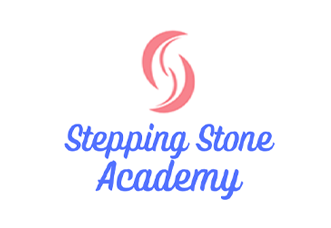A specialized training for nurses on mastering Minimum Data Set (MDS) assessments in long-term care, focusing on accurate documentation, coding, and claims submission to optimize clinical reimbursement.
Course Description
How do we take an assessment of a patient in long-term care, based on their activities of daily living and function, and translate that to a code, that can then be billed for? If you are looking to move beyond the bedside, and utilize your critical thinking and assessment skills, this is a unique niche that gives you the perfect work/life balance!
We do, we document, we code, we claim”.
“It is our job as MDS Coordinators to educate, utilize and guide those who document the data we collect. The more money that is made in this field, the more we can provide for our patients. The transition from bedside has allowed me to use my nursing background to navigate the complex “game” of medical money allocation while improving the financial efficiency of healthcare organizations. I love to think of it as foraging for data and abstracting necessary documentation, and although it can be a mentally stimulating job, I am also able to breathe deeper. It is our job as MDS Coordinators to educate, utilize and guide those who document the data we collect. “We do, we document, we code, we claim”. The more money that is made in this field, the more we can provide for our patients. – Alayna Farrell, RN- MDS CM
Minimum Data Set (MDS) Assessments for Clinical Reimbursement
An interactive course designed to provide nurses with an in-depth understanding of the Minimum Data Set (MDS) and its vital role in both clinical assessment and care planning for financial reimbursement.
Through this course, nurses will learn how to effectively use the Resident Assessment Instrument (RAI) Manual to assess resident conditions, document findings appropriately, and develop care plans that meet regulatory requirements. Emphasis will be placed on accurate data collection and abstraction, interdisciplinary communication within the long-term care community team, and compliance with federal and state regulations.
Course Objectives:
1. Understanding the Purpose and Framework of the MDS and Its Importance Financially.
2. Mastering the Structure of the RAI Manual
3. Completing a Comprehensive MDS Assessment and Directly Related Ancillary Assessments
4. Interpreting and Using MDS Data for Patient Specific Care Planning.
5. Ensuring Regulatory Compliance and Best Practices
6. Analyzing and Reporting MDS Data
7. Integrating Clinical Judgement and MDS Assessments
8. Engaging in Ongoing Education
Module Breakdown:
Module 1: Introduction to MDS nursing and the RAI Manual
• Overview of the MDS
• Structure and function of the RAI process
• Regulatory requirements for MDS assessments
• Key concepts: Resident identifiers, quality indicators and data collection.
Module 2: The Resident Assessment Instrument (RAI) and MDS Section.
• Introduction to the RAI Manual
• Review of specific MDS sections and how to complete them, including Identification information, cognitive patterns, functional status, and communication.
• Understanding assessment triggers and timelines.
Module 3: Conducting Comprehensive Assessments Alongside Ancillary Components
• Cognitive, behavioral and functional assessment techniques
• Tools and methods for gathering data
• Assessing ADL’s, mood and physical status
• Understanding significant changes in resident conditions
Module 4: Care planning and MDS data
• Using MDS date to create comprehensive care plans
• Writing Measurable Goals and Interventions based on MDS findings
• Incorporating IDT input into care planning and adjusting based on MDS updates
Module 5: Regulatory Compliance and MDS documentation
• Ensuring MDS assessments meet CMS state and facility standards
• Importance of accurate documentation and its role in reimbursement
• Common MDS coding errors and how to avoid them.
• Understanding MDS audits and inspections
Module 6: Analyzing MDS data for Quality Improvement
• Using MDS data to monitor and improve care
• Understanding the link between MDS data, Quality Indicators, and care facility ratings.
• MDS data on quality assurance and performance improvement initiatives (QAPI)
Module 7: Case studies and Practical Applications
• Real-Life Case studies- reviewing sample MDS assessments
• Practice exercises in documenting and coding MDS Data
• Identifying care planning interventions based on MDS results
• Group discussions in the interdisciplinary team on solutions
Evaluation and Assessment:
Knowledge checkpoints: quizzes at the end of each module to assess comprehension of MDS processes and RAI manual instructions.
Walk-through of completion of a sample MDS assessment with case study data including documentation and care plan formulation.
Materials and resources:
RAI Manual available online
Sample MDS forms- CMS website
Online Access to CMS and state specific MDS regulations.
This curriculum provides a structured yet flexible approach to learning the essential components of financial reimbursement nursing, ensuring participants not only understand the technical requirements but also how to implement them effectively in their practice. The goal is to present it as a “brain strategy game” that not only betters the care of the patient, but also strives to obtain the maximum financial gain for the company.
About the Instructor:

Alayna Farrell, RN- MDS CM
After several years of working at the bedside as an RN, I decided to transition into financial reimbursement nursing to leverage my clinical expertise in a different capacity. While I loved every branch of nursing that I found myself in through the last decade including acute pediatrics, home health, home infusions and travel nursing, I found myself increasingly drawn to the administrative side of healthcare, particularly in ways in which financial reimbursement impacts patient access to care delivery. Not only did this career path change allow me to continue to utilize the education I worked so hard for clinically, it has also allowed me to keep my brain active, my mind sharp and my nose to the grind all without the burnout of long shifts, understaffed facilities, and strain on my family. It is our job as MDS Coordinators to educate, utilize and guide those who document the data we collect. “We do, we document, we code, we claim”. The more money that is made in this field, the more we can provide for our patients. The transition from bedside has allowed me to use my nursing background to navigate the complex “game” of medical money allocation while improving the financial efficiency of healthcare organizations. I love to think of it as foraging for data and abstracting necessary documentation, and although it can be a mentally stimulating job, I am also able to breathe deeper, focus on my own health and my family significantly more than I was able to do working bedside. My clinical expertise offers a unique perspective, enabling very capable nurses to utilize their brain in ways other than hands-on care. If you find yourself liking strategy games, brain teasers, and are typically a very organized person, MDS nursing may truly be your next calling.
Curriculum
- 2 Sections
- 2 Lessons
- 3 Hours
- Full Video Course1
- Course Completed1
